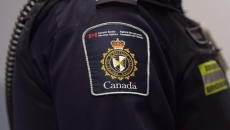A study of COVID-19 infection rates in British Columbia confirms far more people carry the virus than were tested for it, and public health officials say the findings will help tailor future strategies to control the illness.
Provincial health officer Dr. Bonnie Henry and lead author Dr. Danuta Skowronski with the BC Centre for Disease Control say the serology study determined the level of COVID-19 antibodies in hundreds of blood tests.
Tests, gathered anonymously from Metro Vancouver residents whose blood was being checked for unrelated reasons, revealed eight times more infections than reported cases of COVID-19.
Despite that, both doctors say community transmission rate was low at less than one per cent, which they credit to careful observance of physical distancing and other infection control measures.
Henry says given the scant transmission level, what is now needed is targeted testing to determine who has been most affected by the respiratory illness.
She says testing would include health workers in long-term care, some ethnic groups and certain economically vulnerable populations.
Henry told a news conference in Victoria on Thursday serology testing will help determine if there has been transmission "when cases pop up out of nowhere seemingly, if there has been missed transmission."
She says when an outbreak occurred in Alert Bay off northern Vancouver Island in late April, serology tests were done on "a good proportion" of residents there.
"That gives us a better idea of how this virus is transmitted in community settings so we can more nimbly target outbreaks (elsewhere) as we go into the fall," she says.
Researchers relied on four measures, or assays, to identify COVID-19 antibodies in the blood of test subjects because no single assay is a completely reliable marker, Skowronski says.
So-called neutralizing antibodies are considered the "gold standard" of contact with a particular virus and Skowronski says such antibodies were found in blood tests analyzed in mid-May.
If the study's prevalence rate is applied to the whole provincial population, it would mean about 28,000 people have had the novel coronavirus, while 3,149 cases of COVID-19 have been confirmed, supporting the low transmission rate.
"The flip side of that, of course, is that we cannot rest on our laurels, we cannot assume we are in the clear, because it also means there is still substantial residual susceptibility in the population," says Skowronski.
Henry says researchers are unsure how much protection COVID-19 antibodies may provide to those who have been exposed to the virus, or how long any protection might last.
"This study does not address that question," says Skowronski.
"It does, however, very clearly say that we do not have sufficient immunity in the population to prevent subsequent waves."
That means it will come down to individual and collective measures of British Columbians to continue to keep this virus at bay, Skowronski says.
A government news release issued Wednesday said British Columbia recorded 21 new cases of COVID-19 and no new deaths by July 15.






